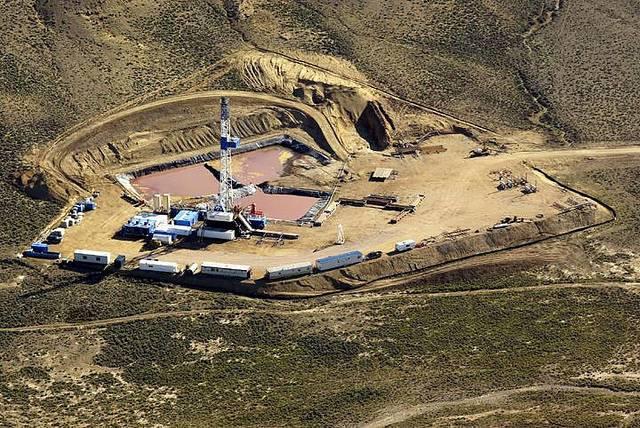
For advocates who believe public lands should be largely preserved and maintained for recreational use, last week was jarring.
First, the White House and Interior Department took the unprecedented step to roll back federal protections for five national monuments. And as widely reported, the Bureau of Land Management (BLM) announced it would delay the implementation of an Obama Administration rule that sought to limit methane leaks from drilling operations conducted on federal lands.
While methane only comprises about 10 percent of all U.S. greenhouse gas emissions in 2015, estimates suggest it is at least 25 five times more potent than carbon upon its release into the atmosphere.
Now the oil and gas industry, led by the American Petroleum Institute (API), is launching a voluntary “Environmental Partnership” that seeks to reduce emissions from natural gas extraction.
Under this plan, participating companies would implement technologies that would reduce the leaks of greenhouse gasses such as methane; update or retrofit equipment while stopping practices known to contribute to methane leaks; and report such progress on an annual basis.
“The industry has a long record of implementing technology and practices that have proven to increase efficiency and reduce the environmental footprint of operations,” said Jack Gerard, President and CEO of API in a public statement. “In establishing the Environmental Partnership, the natural gas and oil industry is working together to promote the most effective programs and opportunities to improve environmental performance throughout our operations.”
The API had long criticized the Obama era’s BLM methane rule as “redundant, technically flawed and unnecessary.” Instead, the energy trade group says the expertise of its member companies best positions the industry as a key player in helping the U.S. reduce its environmental impact.
Companies that are participating include Shell, Occidental Petroleum, BP, XTO Energy (a subsidiary of ExxonMobil), Chesapeake Energy, Chevron, Marathon Oil and Total.
This is the first time in its almost 100-year history that the API has embarked on any kind of program to curb emissions. What’s notable about the announcement, however, is that the industry is making clear this has nothing to do with “climate change.” This agenda is all about the “environment” instead.
The program starts on January 1, and again, it is completely voluntary. The API has not set any emissions targets, but only asks companies to report on their progress. Contrast that effort with those of many of the world’s largest companies, many of which have committed to science-based climate action targets. There is also no penalty for non-compliance, though an API official told Axios that one outcome “would be to take names off the new website” that is soon targeted to time with this program’s launch.
API’s Environmental Partnership has failed to impress at least one environmental NGO. Critics say the effort is weaker than a voluntary program headed by the Environmental Protection Agency, gives participants up to five years to reduce any emissions and is very selective about what natural gas extraction sites will actually undergo any leak detection monitoring.
“We welcome genuine efforts by industry to curb its methane and other air pollution, but this current effort falls far short of what’s needed and possible. And worse—it distracts from other efforts to actually address the problem,” said Brianna Mordick, a senior scientist with the Natural Resources Defense Council in a recent blog post. “If API and the oil and gas industry are truly concerned about this problem, we urge them to support the federal methane regulation efforts underway instead of attempting to undermine them.”
Image credit: SkyTruth/Flickr

Leon Kaye has written for 3p since 2010 and become executive editor in 2018. His previous work includes writing for the Guardian as well as other online and print publications. In addition, he's worked in sales executive roles within technology and financial research companies, as well as for a public relations firm, for which he consulted with one of the globe’s leading sustainability initiatives. Currently living in Central California, he’s traveled to 70-plus countries and has lived and worked in South Korea, the United Arab Emirates and Uruguay.
Leon’s an alum of Fresno State, the University of Maryland, Baltimore County and the University of Southern California's Marshall Business School. He enjoys traveling abroad as well as exploring California’s Central Coast and the Sierra Nevadas.














